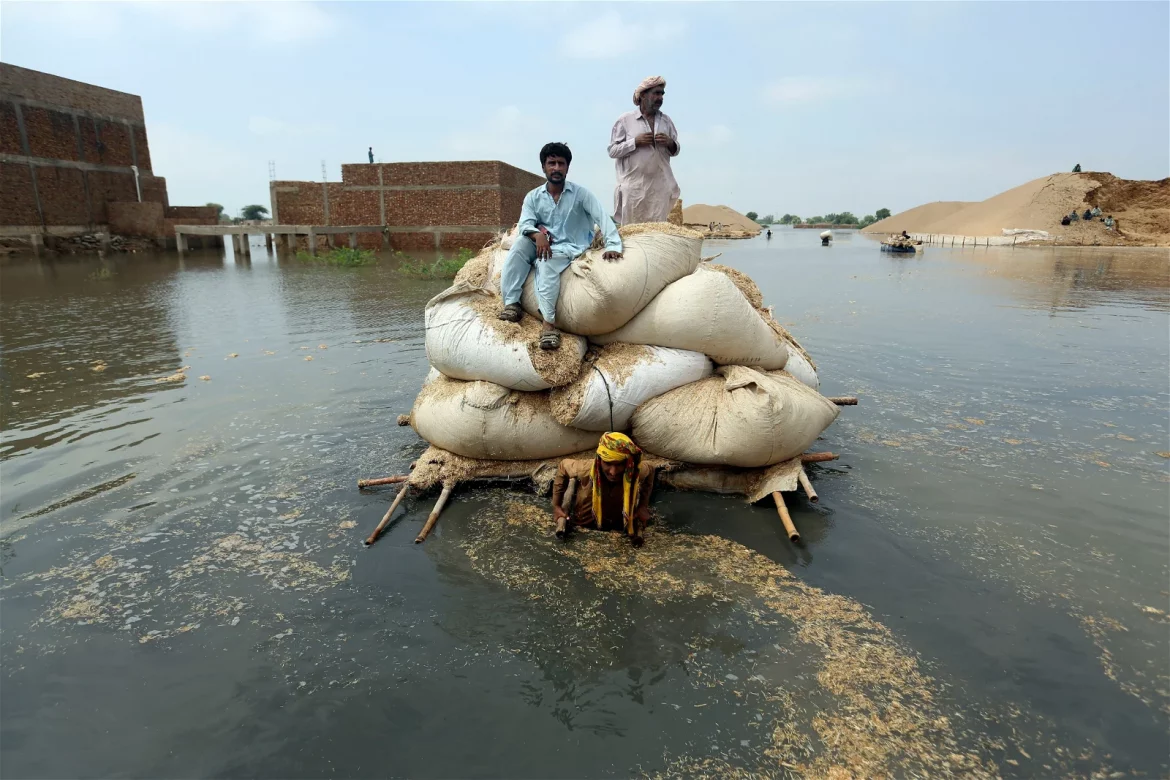Shehbaz Sharif, the prime minister of Pakistan has applauded the world community on Wednesday for providing $9.7 billion to help Islamabad recover from disastrous summer floods brought on by climate change at a summit this week in Geneva.
The summit, which lasted all day on Monday and was co-hosted by Sharif and UN Secretary-General Antonio Guterres, was attended by representatives from numerous nations, international financial organizations, and individual contributors.
According to reports, the total of promises exceeds the goal set by Sharif for foreign donors to provide half of the $16.3 billion needed over the following three years to recover and rebuild from flooding.
Read also: Obaseki to Launch Edo FEWMA to tackle flood, erosion
Some of the largest funders included the Islamic Development Bank, the World Bank, Saudi Arabia, France, the United States, China, and the European Union. According to Pakistani officials, project-financing loans make up about 90% of pledged promises.
According to U.N. and Pakistani officials, the flooding, which was brought on by unusually erratic monsoon rains between June and August of last year, affected 33 million people, forced 8 million people to leave their homes, killed more than 1,700 people, and brought an additional 9.1 million people below the poverty line.
“The faster we can design and create feasibilities and impress [donors], the faster these pledges will materialize,” the prime minister said when asked how soon Pakistan expects to receive the money at a press conference.
He thanked the U.N. Secretary General Anthonio Guterres for his “pivotal” role in making the Geneva conference a “resounding success” and fighting for the flood victims “like a Pakistani.”
Guterres opened Monday’s event with an impassioned plea for aid on behalf of millions of Pakistanis whose lives and livelihoods were upended by the flooding. He described the crisis as a “climate disaster of monumental scale” and noted that one-third of Pakistan remained underwater more than six months after floods hit the country.
In addition to public communications on the recovery’s progress, Sharif reaffirmed that efficient monitoring and evaluation procedures will be implemented to ensure openness in money distribution and spending.
Critics have pointed out that a number of issues, such as inflated project prices, corruption and fraud by authorities in recipient states, sometimes result in pledges made at international conferences not totally materializing.
Independent investigations conducted in Pakistan in the past have revealed widespread fraud and corruption in relief efforts launched in the wake of the disastrous earthquake in 2005 and the monsoon flood disaster in 2010. An investigation ordered by the British independent charity Oxfam into one of its initiatives in the flood-stricken southern Sindh province came to the conclusion that there had been a loss via fraud of up to $220,000.
The organization stated in its report, which was published in August 2011, that “invoices were found to be forged; and there was substantial manipulation of checks to vendors.”
This story was adapted from VOA.
